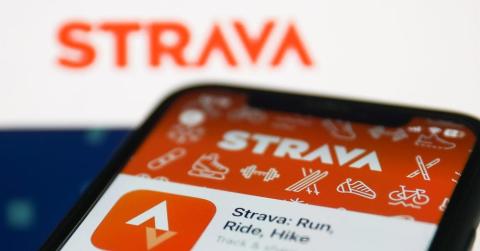
A new and controversial trend is taking hold in Indonesia, where savvy teenagers have discovered a unique side hustle: running for other people and logging the miles on the popular fitness app Strava. These so-called “Strava jockeys” are capitalizing on the app's growing user base and the increasing demand for social validation through fitness achievements.
One such teenager, 17-year-old Wahyu Wicaksono, has turned this trend into a lucrative business. For a fee, Wahyu logs runs under other people's Strava accounts, allowing them to "achieve" their fitness goals without breaking a sweat. Wahyu charges 10,000 rupiah (approximately 62 cents) per kilometer for a fast-paced run, where he covers one kilometer in four minutes. For a slower, more leisurely pace, the fee is 5,000 rupiah per kilometer. Wahyu's business has gained traction on social media, particularly on the platform X (formerly Twitter), where the trend has gone viral.
Another Strava jockey, 17-year-old Satria, has also joined the trend, charging 5,000 rupiah per kilometer. He views the opportunity as a win-win, combining his passion for running with a way to earn extra cash. “I’ve taken part in marathons before, so running is my hobby. I’ve got nothing to lose,” Satria told Channel News Asia (CNA).

However, the trend has raised ethical concerns and caught the attention of Strava itself. The company, which boasts over 100 million users across 190 countries, emphasizes the importance of authenticity in its platform. Linh Le, Strava’s director of corporate communications, expressed concern about the practice, stating, “Strava’s mission is to motivate people to live their best lives. Part of the platform’s magic comes from the authenticity of our global community in uploading an activity, giving kudos, or engaging in a club.”
Sharing accounts or credentials violates Strava’s terms of service, and the company sees this as a serious breach that undermines the integrity of its platform. “This is important to safeguarding and respecting the progress and work of our athletes as they lace up every day,” Le added.
While the trend seems largely isolated to Indonesia for now, the demand for online validation—whether through likes, kudos, or other forms of engagement—could lead to similar practices elsewhere. For some, the temptation to hire a fast neighborhood runner to rack up miles and earn digital accolades might be too great to resist.
As the saying goes, “If it’s not on Strava, it didn’t happen.” But with the rise of Strava jockeys, what happens when those miles weren’t yours to begin with?
For more content find us via the app store:
Discover More Content





